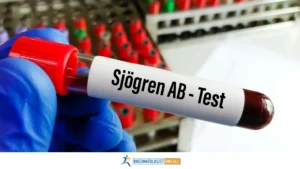SHARE
Sjogren’s Syndrome is a chronic autoimmune disorder that primarily affects the salivary and lacrimal glands, resulting in dry mouth and eyes. It can also affect other organs, including the skin, joints, and lungs. The absence of effective treatments has significantly impacted the management of patients with Sjogren’s Syndrome; nevertheless, throughout the past ten years, progress has been achieved in defining diagnostic criteria, systemic disease activity grading, and patient-reported outcomes.
Understanding the mechanisms underlying the pathophysiology of primary Sjogren’s syndrome has also advanced, allowing for the development of more focused therapy strategies. Although the 2019 management recommendations from EULAR are currently being utilized to inform clinical care of pSS, therapy decisions are still primarily based on experience rather than evidence and systemic signs and similarities with other autoimmune illnesses.
Currently, there is no cure for Sjogren’s Syndrome, but several new treatments for Sjogren’s syndrome are available to help manage the symptoms.
Ianalumab:
One potential new treatment for Sjogren’s Syndrome is using Ianalumab. This is a monoclonal antibody that targets and blocks the activity of a protein called B-cell activating factor (BAFF). BAFF plays a crucial role in activating and surviving B cells, a type of white blood cell that produces antibodies and was found to be high in patients with Sjogren’s syndrome.
In Sjogren’s Syndrome, there is an overproduction of BAFF, which leads to the activation of B cells that attack the body’s tissues, including the salivary and lacrimal glands. By blocking the activity of BAFF, Ianalumab can potentially reduce the activation and survival of autoreactive B cells, thus reducing inflammation and tissue damage.
New research showed that using Ianalumab in treating Sjogren’s Syndrome might be a promising solution to improve the disease. A recent study published in 2022, that involved 293 patients support these promises. In this study, 190 patients were randomized to receive this new drug for 24 weeks. At the end of this study, the patients that received the drug showed improvement in their inflammation and salivary gland production, which improved the dryness. The medication was well tolerated by patients. Currently there are many centers in the United states that are recruiting patients to see if the results of this initial study can be reproduced further.
In addition to Ianalumab, several new treatments for Sjogren’s syndrome are being investigated. These include:
Rituximab:
Rituximab, a monoclonal antibody directed against the CD20 cell surface marker on B cells and their precursors, has been studied extensively as a treatment option. The findings have been variable. Rituximab showed promising results in treating extraglandular symptoms , like lung disease, but when it came to dryness and fatigue, was not able to show patients improve these symptoms. Some researchers found Rituximab to be helpful with parotid swelling, vasculitis and periferal neuropathy.

Tumor necrosis factor inhibitors:
Tumor necrosis factor alpha inhibitors are medications used to decrease inflammation in patients with rheumatoid arthritis and psoriatic arthritis. Medications like, infliximab and etanercept were also tried , but with mixed results. Some patients might actually benefit if they have inflammatory arthritis that is causing swelling in their joints and elevated markers of inflammation.
Belimumab:
Belimumab, is a medication used in patients with lupus. This medication was also tried in patients with Sjogren’s Syndrome and showed to have a modest effect. The patients that tried this medication has a small improvement in dryness but fatigue was not improved. Belimumab was helping patients that had parotid swelling, joint pain and high rheumatoid factor levels.
Abatacept:
Abatacept is a medication commonly used in patients with rheumatoid arthritis.Although initially, this medication gave patients hope, the effect of this drug was not sustained in time.

Tocilizumab:
Tocilizumab is an interleukin 6 (IL-6) receptor inhibitor used for patients with rheumatoid arthritis. Unfortunately, this medication was not helpful either for patients with Sjogren’s Syndrome
Conclusion:
In conclusion, developing new treatments for Sjogren’s syndrome, such as Ianalumabhope for improved management of this chronic autoimmune disorder. Despite multiple trials and errors, patients with Sjogren’s Syndrome should keep their hope as more and more discoveries are made every year. Staying in contact with a rheumatologist that is following the upcoming discoveries is a must when you are dealing with a complex disease such as Sjogren’s Syndrome. If you want to learn more about Sjogren’s Syndrome watch Dr. Girnits’s educational videos on Youtube and read her blogs. If you need help, do not hesitate to contact us, we are a telemedicine practice seeing patients in multiple US states.














